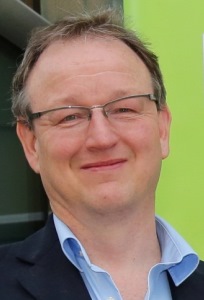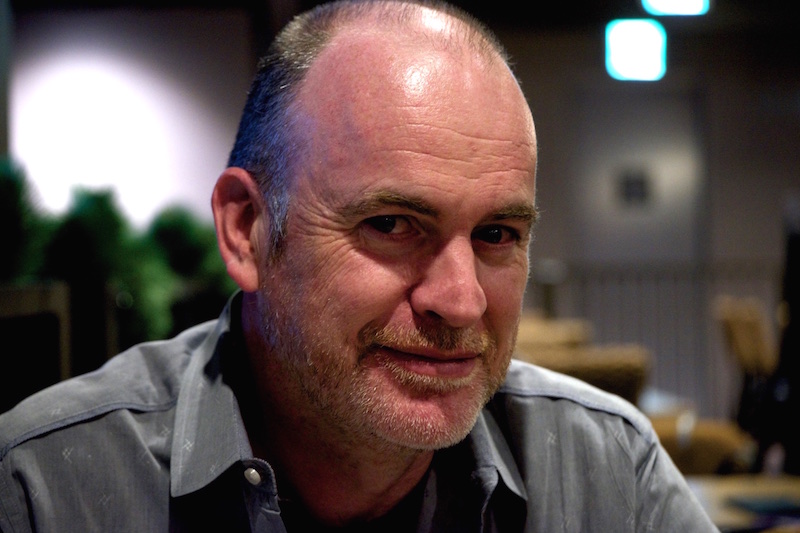The 9th ACM SIGCHI Symposium on Engineering Interactive Computing Systems
June 26-29, 2017 - Lisbon, Portugal
Keynotes
We are pleased to announce the Keynote Speakers for EICS 2017: Paul Dourish and Gilbert Cockton.
Gilbert Cockton - Northumbria University (Tuesday, 27)
Engineering Is Worth It, But Only When Rational Ideals Accept Reflective Realities
Abstract: Engineering and Creative Design have overlapping traditions, although the latter is four orders of magnitude older than the former. The former has been more normative about design processes than the latter. Norms have differed, with creative design often celebrating the hand-made, and engineering typically exploiting mechanisation. In contrast, norms did converge with scientifically motivated approaches to creative design (e.g., Bauhaus, Ulm, Design Methods movement). The underlying values of Engineering and Creative Design have thus both converged and diverged. Empirical facts however are overwhelmingly convergent, but with only partial evidence of the rational idealised linear ideals of Engineering Design being met. Regardless of the craft space, reflective creative design, where design materials talk back to co-evolve both problem and solution framing, dominates when complete processes are studied. Agile development methodologies are a first step in moving away from the impossibility of Rational Idealised Linear Engineering Design (RILED) towards the realities of creative reflective practice. In this talk, I will present a tactical reframing of engineering ideals within the realities of creative reflective design. Engineering ideals do have potentially worthwhile roles place in creative axiological practices, but these are to support, not to direct. In this talk I will use Abstract Design Situations to contrast the major design paradigms and empirical studies to expose their limitations as a basis for outlining some worth-focused approaches to Interaction Design that can exploit engineering rigour within the realities of creative reflective work contexts.

Biography: Gilbert Cockton is Professor in Design Theory at the Northumbria School of Design. Gilbert has published extensively on usability, user experience and accessibility, grounded- and worth/value-centred design, and notations and architectures for interactive software. His key focus is on the balance between human-focused practice and creative and technical inventiveness in interaction design and evaluation. Gilbert has served in many roles within the international HCI community, including Vice-Chair of IFIP TC13 (2004-06), Chair of British HCI Group (2001-2004), Chair of ACM CHI 2003 and BCS HCI 2000 Conferences, and Secretary of IFIP WG2.7 on user interface engineering (1993-99). He is Co-Editor-in-Chief of ACM Interactions, Editor Emeritus of the journal Interacting with Computers, and a member of the editorial board of the Journal of Usability Studies.
Paul Dourish - UC Irvine (Thursday, 29)
The Stuff of Bits: Exploring the Materialities of Information in Interaction
Abstract: Much of the language of computation is based on the idea that virtual experiences are, by definition, immaterial. On the other hand, in the context of mobile and ubiquitous computing, we have been reminded of the importance of the physical world, and many in HCI over the last decade have been intrigued by the possibilities of new interactive materials. In this talk, I will explore the range of ways that we might want to grapple with the materiality of information — not just of information infrastructures, or of information-rich objects, but of digital information itself and particularly information representations. I will draw on research from anthropology, philosophy, and science studies to demonstrate how we might incorporate a sense of the material more deeply into the ways that we think about interaction with digital information.

Biography: Paul Dourish is Chancellor's Professor of Informatics in the Donald Bren School of Information and Computer Sciences at UC Irvine, with courtesy appointments in Computer Science and Anthropology, and an Honorary Senior Fellow in Computing and Information Systems at the University of Melbourne. His research focuses primarily on understanding information technology as a site of social and cultural production; his work combines topics in human-computer interaction, social informatics, and science and technology studies. Paul is a Fellow of the ACM, a member of the SIGCHI Academy, and a recipient of the AMIA Diana Forsythe Award and the CSCW Lasting Impact Award. Before UCI, he was a Senior Member of Research Staff in the Computer Science Laboratory of Xerox PARC; he has also held research positions at Apple Computer and at Rank Xerox EuroPARC.

